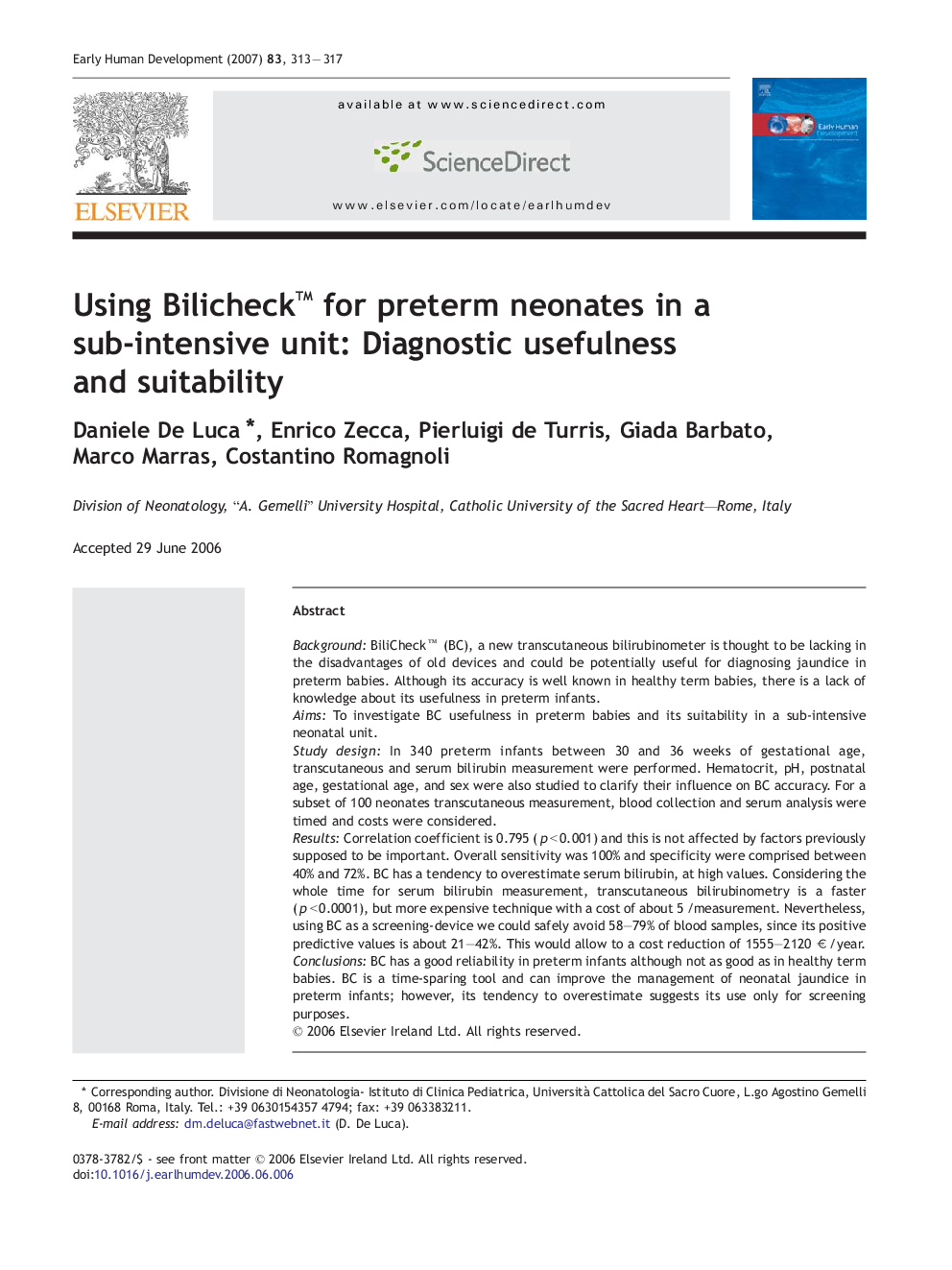| Article ID | Journal | Published Year | Pages | File Type |
|---|---|---|---|---|
| 3918341 | Early Human Development | 2007 | 5 Pages |
BackgroundBiliCheck™ (BC), a new transcutaneous bilirubinometer is thought to be lacking in the disadvantages of old devices and could be potentially useful for diagnosing jaundice in preterm babies. Although its accuracy is well known in healthy term babies, there is a lack of knowledge about its usefulness in preterm infants.AimsTo investigate BC usefulness in preterm babies and its suitability in a sub-intensive neonatal unit.Study designIn 340 preterm infants between 30 and 36 weeks of gestational age, transcutaneous and serum bilirubin measurement were performed. Hematocrit, pH, postnatal age, gestational age, and sex were also studied to clarify their influence on BC accuracy. For a subset of 100 neonates transcutaneous measurement, blood collection and serum analysis were timed and costs were considered.ResultsCorrelation coefficient is 0.795 (p < 0.001) and this is not affected by factors previously supposed to be important. Overall sensitivity was 100% and specificity were comprised between 40% and 72%. BC has a tendency to overestimate serum bilirubin, at high values. Considering the whole time for serum bilirubin measurement, transcutaneous bilirubinometry is a faster (p < 0.0001), but more expensive technique with a cost of about 5 €/measurement. Nevertheless, using BC as a screening-device we could safely avoid 58–79% of blood samples, since its positive predictive values is about 21–42%. This would allow to a cost reduction of 1555–2120 €/year.ConclusionsBC has a good reliability in preterm infants although not as good as in healthy term babies. BC is a time-sparing tool and can improve the management of neonatal jaundice in preterm infants; however, its tendency to overestimate suggests its use only for screening purposes.
